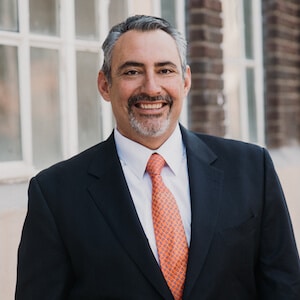Tearing Down the Silos of Work and School
Education Domain Blog
 When a student asks, “Why am I learning this? When will I ever use it?” we don’t always have a direct answer. In fact, the XQ report High School and the Future of Work found only half of high school students believe their school has helped them figure out which careers match their skills and interests. Reframing learning and work into a life-giving experience should be a fundamental role for our schools. How do we help students find jobs they love?
When a student asks, “Why am I learning this? When will I ever use it?” we don’t always have a direct answer. In fact, the XQ report High School and the Future of Work found only half of high school students believe their school has helped them figure out which careers match their skills and interests. Reframing learning and work into a life-giving experience should be a fundamental role for our schools. How do we help students find jobs they love?
I’d like to introduce you to Dallas. She is a junior at Siembra Leadership High School, a member of the Leadership Schools Network. It is a four-school network in Albuquerque New Mexico which is dedicated to providing the best education for the students who need it the most. The school is focused on educating students through entrepreneurship and it is designed to re-engage young people who have dropped out or are off-track to graduation by getting their hands dirty with local partners to solve real-world problems.
Dallas is a student who wants to work. We gave her a job that was worth doing. She was part of the Future Focused Education paid internship program at The Improve Group. She had a mentor and a lot of different work experiences that have been super valuable to her growth as a young leader. I attended her exhibition where she presented what she had learned from her internship to her teachers and co-workers. She talked at length about how her life had changed as a result of real-life work experience. She learned communication skills like email etiquette, attended staff meetings where she was exposed to expert facilitation, and watched skilled leaders build consensus across disparate opinions.
One of the most pernicious myths about poor young people of color is that they don’t want to work. It is the subtext of the “skills gap” that claims there are thousands of jobs that can’t be filled. Many young people of color already work because their family needs the extra income. But they work in exploitative dead-end jobs. These minimum wage experiences are anything but life-giving. They are ill-treated and get fired if they advocate for their own needs. Being told to work the midnight shift “or else” does not endear them to the job when they have class at 7:30 am the next day. Instead, we must connect them to real-life experiences in the work place so they can master the skills to thrive in a career over the long term. Schools must be in the business of building relationships with employers so that students can be seen as the building blocks for prosperous communities.
Young people like Dallas need to see adults use their judgment on behalf of the greater good. They need to know how to master writing emails and collaborating in real time with real adults. This is fundamental to their future health and prosperity whether they are going straight to college or into a career. Young people like Dallas are starving for experiences like she had at The Improve Group. It’s transformative. It allows them to see their own possibilities and their place in the world.
The distinctions between schools and the private and non-profit sectors are a vestige of the past, yet we continue to put them into separate categories that no longer serve us. Building relationships across obsolete silos of school, jobs and the economy is our best chance to make our communities healthier, prosperous and equitable.
Tony is from Albuquerque, New Mexico and has worked in education since 1990. He began his career at the Chicago Panel on Public School Policy to promote the restructuring of the Chicago Public Schools. After leaving Chicago in 1993, he joined the staff of the Legislative Education Study Committee in Santa Fe, New Mexico where he specialized in public school finance. This big picture work was fundamental in establishing the context for cutting edge small high schools in his hometown. His work is focused on using the local wisdom and reciprocal relationships with communities to create schools that provide, “the best education for the students who need it the most.”
Please join us at this year’s iNACOL Symposium where Tony will keynote along with Carlos Moreno and Phyllis Lockett on Leading the Transformation of Education Systems; Dedicated to High-Quality Learning for All.